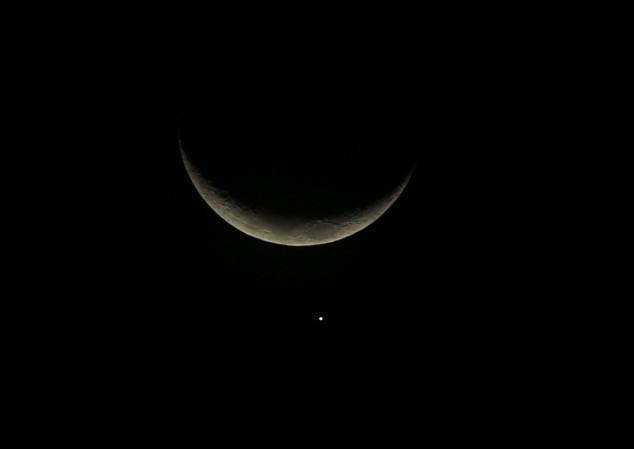
Eid al-Fitr is one of the two biggest festivals in the Islamic tradition and it is just around the corner. It is an important occasion for Muslims as it also marks the end of Ramadan, the holy month of fasting Muslims observe across the globe.
Eid al-Fitr is the first day of Shawwal – the tenth month of the Islamic calendar – and the day of feasts and celebrations. Just like all the other months, Shawwal will commence with the sighting of the crescent, hence confirming Eid al-Fitr.
Saudi Arabia and other Western countries will begin their quest for the Shawwal moon on Saturday. If sighted with naked eye or binoculars, Eid al-Fitr will be celebrated on Sunday in those regions. The Saudi Supreme Court has already asked anyone who sees the crescent on Saturday to report to the nearest court and register his testimony.
If Eid al-Fitr is celebrated in Saudi Arabia and other states and countries in the West, Muslims in those regions will observe only 29 fasts of Ramadan. We will update this article once we get a confirmation from Saudi Arabia that the Eid al-Fitr has been declared on Sunday, June 25.
If that's the case then it is pretty much confirmed that Eid al-Fitr will be celebrated in India, Pakistan and other neighbouring countries on Monday, June 26. The final confirmation of Eid al-Fitr depends on the sighting of the Shawwal moon in respective countries.
Astronomical calculations have already revealed that Eid al-Fitr 2017 in India will fall on Monday. This means Indians, too, like Saudi Arabia, will observe 29 fasts this year.
In contrast, if the moon is not sighted on June 25, Muslims in the country will fast for another day and celebrate Eid on Tuesday, June 27. Markazi Ruyat-e-Hilal Committee will take the final decision on the Eid al-Fitr date in India.
In some countries, including Peru, Ecuador, and islands in the Pacific Ocean, the crescent moon will be visible with naked eye. Some parts of Latin America, the US and Africa will also be able to see the new moon with the naked eye on the evening of June 24.
All Muslim countries observe extended holidays for Eid al-Fitr, while most countries declare at least one-day national holiday for Eid. In Saudi Arabia, Eid holidays begin early and go as long as 23 days, Muslims in Qatar get 11 days, and UAE, Kuwait and Oman get nine days. In Pakistan, Eid al-Fitr holidays last three days while Indians get just one day for Eid al-Fitr on Monday, June 26.









